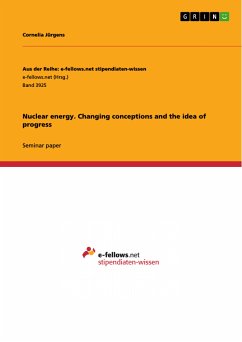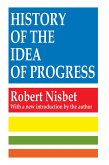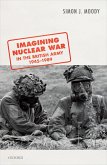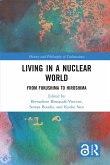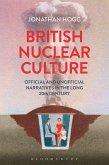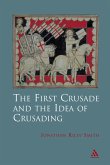Seminar paper from the year 2020 in the subject History - World History - Modern History, grade: 8,5/10, VU University Amsterdam , language: English, abstract: Nuclear power has been one of the main sources of energy for human use for almost a century. It was once seen as a symbol of progress, as proof humanity was advancing at a rapid speed, but this view changed within only a few decades. Today, discussions about what to do about the existing nuclear reactors and the waste they produce have still not been solved. The main debate, whether existing nuclear reactors should be shut down or continued to be used, has to be put in its historical context in order to understand why so many countries want to continue using them despite their proven highly negative effect on the environment. As Sarah Maza puts it, "the study of the past revolves around questions about [...] the creation of meaning (how did our predecessors make sense of the world?)". Although at the moment, environmentalist debates often primarily focus on climate change and the extinction of species, the fate of nuclear reactors is an important issue as well. Their effects on the environment have been known for several decades and there have been attempts to find a better source of energy, but due to the apparent success of nuclear energy and the difficulty of establishing a reliable, clean source of energy, only a few countries are actively shutting their reactors down while others are still building new ones. In order to fully understand this issue and possibly find a solution, the debate has to be looked at from a historical perspective. This essay consists of three main parts. The first will discuss the discovery of nuclear power and how it was conceived of in the beginning. Next, its effect on the environment according to current scientific knowledge will be laid out. Lastly, I will discuss how and why conceptions of nuclear energies have changed over the last decades.
Dieser Download kann aus rechtlichen Gründen nur mit Rechnungsadresse in A, B, BG, CY, CZ, D, DK, EW, E, FIN, F, GR, HR, H, IRL, I, LT, L, LR, M, NL, PL, P, R, S, SLO, SK ausgeliefert werden.

